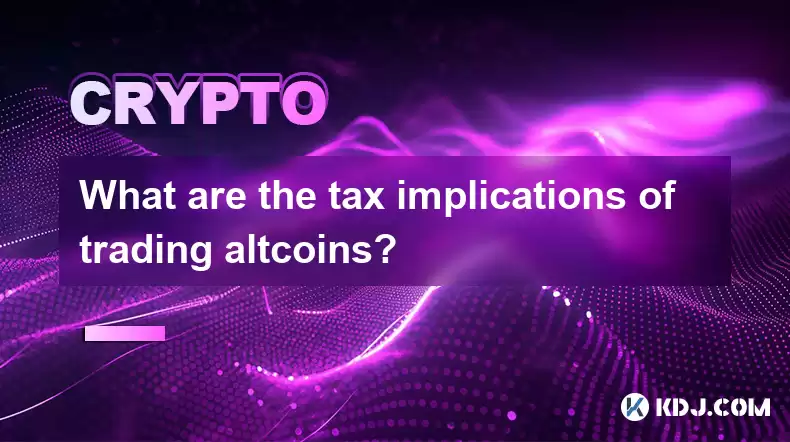-
 Bitcoin
Bitcoin $112400
-1.07% -
 Ethereum
Ethereum $3409
-3.27% -
 XRP
XRP $2.784
-6.60% -
 Tether USDt
Tether USDt $0.9997
-0.03% -
 BNB
BNB $739.3
-2.09% -
 Solana
Solana $158.0
-2.90% -
 USDC
USDC $0.9998
-0.02% -
 TRON
TRON $0.3213
-0.94% -
 Dogecoin
Dogecoin $0.1929
-5.01% -
 Cardano
Cardano $0.6974
-2.82% -
 Hyperliquid
Hyperliquid $36.69
-2.31% -
 Sui
Sui $3.327
-4.80% -
 Stellar
Stellar $0.3672
-5.18% -
 Chainlink
Chainlink $15.65
-3.07% -
 Bitcoin Cash
Bitcoin Cash $525.0
-1.68% -
 Hedera
Hedera $0.2291
-6.00% -
 Avalanche
Avalanche $20.91
-2.96% -
 Ethena USDe
Ethena USDe $1.000
0.00% -
 Toncoin
Toncoin $3.520
-1.12% -
 UNUS SED LEO
UNUS SED LEO $8.968
0.14% -
 Litecoin
Litecoin $105.7
0.26% -
 Shiba Inu
Shiba Inu $0.00001181
-1.79% -
 Polkadot
Polkadot $3.492
-2.08% -
 Uniswap
Uniswap $8.800
-3.10% -
 Dai
Dai $0.9999
-0.01% -
 Monero
Monero $289.9
-3.17% -
 Bitget Token
Bitget Token $4.243
-1.27% -
 Pepe
Pepe $0.00001006
-3.67% -
 Cronos
Cronos $0.1248
-5.68% -
 Aave
Aave $249.7
-2.50%
What are the tax implications of trading altcoins?
Altcoin transactions, like buying and selling, trigger capital gains or losses upon sale, and proper record-keeping and reporting are crucial for tax compliance.
Jan 05, 2025 at 02:52 am

Key Points:
- Understanding the tax implications of altcoin trading is crucial for avoiding potential penalties.
- Altcoins are treated as property by tax authorities, resulting in capital gains or losses upon sale.
- Proper record-keeping and reporting are essential to maintain compliance with tax laws.
- Understanding the wash sale rule is important to avoid denying capital losses.
- Seeking professional tax advice is recommended for personalized guidance on altcoin tax implications.
Article:
1. Taxation of Altcoins as Property
Altcoins, any cryptocurrency other than Bitcoin, are classified as "property" by the Internal Revenue Service (IRS) and most other tax authorities. This means that transactions involving altcoins, such as buying, selling, or exchanging, are subject to capital gains or losses.
2. Capital Gains and Losses
Upon the sale or exchange of an altcoin, you may realize a capital gain (if the sale price exceeds your purchase price) or a capital loss (if the sale price falls below your purchase price). These gains or losses are calculated based on the cost basis of the altcoins, which is typically the purchase price plus any transaction fees incurred.
3. Record-Keeping and Reporting
Proper record-keeping is vital for accurate tax reporting. Keep detailed records of all altcoin transactions, including the date, type (e.g., purchase, sale, exchange), amount, cost basis, and any associated fees. These records will substantiate your capital gains and losses when filing your tax return.
4. The Wash Sale Rule
The wash sale rule prevents you from claiming capital losses on altcoins if you subsequently repurchase the same or "substantially identical" altcoins within 30 days of the sale. If a wash sale occurs, the disallowed loss is added to the cost basis of the replacement altcoins.
5. Professional Tax Advice
The tax implications of altcoin trading can be complex, and seeking professional advice is highly recommended. A tax advisor can provide personalized guidance based on your specific circumstances, ensuring compliance with tax laws and optimizing your tax strategy.
FAQs:
Q: What is the tax rate on altcoin capital gains?
A: The tax rate on altcoin capital gains varies depending on your income and the holding period of the altcoins. Short-term capital gains (held for less than a year) are taxed at your ordinary income tax rate, while long-term capital gains (held for a year or more) are taxed at lower preferential rates.
Q: Do I have to pay taxes on altcoins I received as a gift?
A: If you receive altcoins as a gift, they are not taxable until you sell or exchange them. The cost basis of the altcoins will be the fair market value on the date of the gift.
Q: What are the tax consequences of mining altcoins?
A: Mining altcoins is considered a form of self-employment. You are required to report the income earned from mining as business income on your tax return. The expenses associated with mining, such as electricity and computer hardware, can be deducted from your mining income.
Q: Can I offset altcoin losses against other income?
A: Altcoin capital losses can only be offset against other capital gains. If your altcoin losses exceed your capital gains, up to $3,000 of the remaining losses can be deducted from your ordinary income each year.
Q: How do I report altcoin transactions on my tax return?
A: You should use Form 8949 and Schedule D (Form 1040) to report your altcoin transactions. Form 8949 is used to summarize your capital gains and losses, while Schedule D is used to calculate your tax liability.
Disclaimer:info@kdj.com
The information provided is not trading advice. kdj.com does not assume any responsibility for any investments made based on the information provided in this article. Cryptocurrencies are highly volatile and it is highly recommended that you invest with caution after thorough research!
If you believe that the content used on this website infringes your copyright, please contact us immediately (info@kdj.com) and we will delete it promptly.
- BlockDAG, SEI, Ethena: Top Crypto Performers Under the Microscope
- 2025-08-03 10:50:16
- Bitcoin Blasts Past $119K: How Institutional Adoption and Macro Shifts Fuel the Fire
- 2025-08-03 10:55:16
- Crypto, Grok, and August: Decoding the Latest Trends and Insights
- 2025-08-03 11:10:16
- Crypto, Phishing, and Your Wallet: A New Yorker's Guide to Staying Safe
- 2025-08-03 10:30:16
- Troller Cat Meme Coin Presale Soars: A New King in the Crypto Jungle?
- 2025-08-03 10:30:16
- Grayscale, Altcoin Trust, and Mid-Cap Mania: What's the Deal?
- 2025-08-03 08:50:16
Related knowledge

What is Chainlink (LINK)?
Jul 22,2025 at 02:14am
Understanding Chainlink (LINK): The Decentralized Oracle NetworkChainlink is a decentralized oracle network designed to bridge the gap between blockch...

What is Avalanche (AVAX)?
Jul 22,2025 at 08:35am
What is Avalanche (AVAX)?Avalanche (AVAX) is a decentralized, open-source blockchain platform designed to support high-performance decentralized appli...

What is Polkadot (DOT)?
Jul 19,2025 at 06:35pm
Understanding the Basics of Polkadot (DOT)Polkadot (DOT) is a multi-chain network protocol designed to enable different blockchains to transfer messag...

What is Litecoin (LTC)?
Jul 23,2025 at 11:35am
Overview of Litecoin (LTC)Litecoin (LTC) is a peer-to-peer cryptocurrency that was created in 2011 by Charlie Lee, a former Google engineer. It is oft...

What is Monero (XMR)?
Jul 21,2025 at 10:07am
What is Monero (XMR)?Monero (XMR) is a decentralized cryptocurrency designed to provide enhanced privacy and anonymity for its users. Unlike Bitcoin a...

How to add indicators to Ethereum chart on TradingView?
Jul 19,2025 at 07:15am
What Is an Ethereum Chart on TradingView?The Ethereum chart on TradingView is a visual representation of the price movement of Ethereum (ETH) over a s...

What is Chainlink (LINK)?
Jul 22,2025 at 02:14am
Understanding Chainlink (LINK): The Decentralized Oracle NetworkChainlink is a decentralized oracle network designed to bridge the gap between blockch...

What is Avalanche (AVAX)?
Jul 22,2025 at 08:35am
What is Avalanche (AVAX)?Avalanche (AVAX) is a decentralized, open-source blockchain platform designed to support high-performance decentralized appli...

What is Polkadot (DOT)?
Jul 19,2025 at 06:35pm
Understanding the Basics of Polkadot (DOT)Polkadot (DOT) is a multi-chain network protocol designed to enable different blockchains to transfer messag...

What is Litecoin (LTC)?
Jul 23,2025 at 11:35am
Overview of Litecoin (LTC)Litecoin (LTC) is a peer-to-peer cryptocurrency that was created in 2011 by Charlie Lee, a former Google engineer. It is oft...

What is Monero (XMR)?
Jul 21,2025 at 10:07am
What is Monero (XMR)?Monero (XMR) is a decentralized cryptocurrency designed to provide enhanced privacy and anonymity for its users. Unlike Bitcoin a...

How to add indicators to Ethereum chart on TradingView?
Jul 19,2025 at 07:15am
What Is an Ethereum Chart on TradingView?The Ethereum chart on TradingView is a visual representation of the price movement of Ethereum (ETH) over a s...
See all articles

























































































